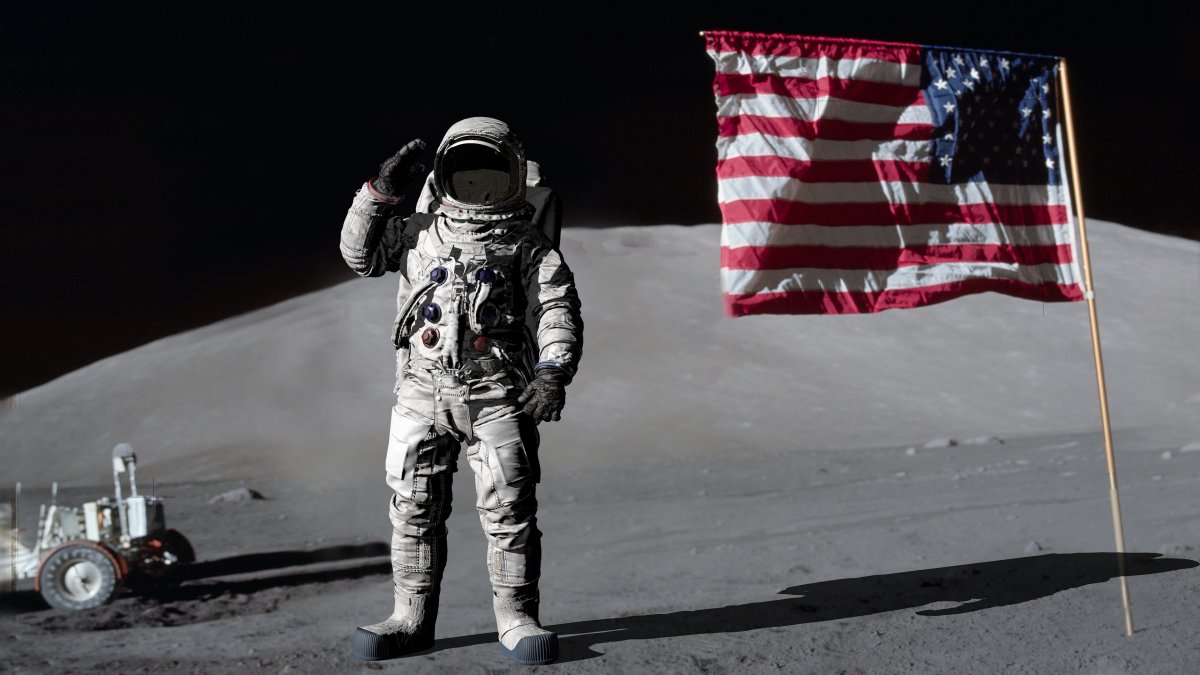There are few scenarios more terrifying to imagine than being trapped in the eternal abyss of space with no way home to Earth.
This nightmare has become somewhat of a reality for one American and two Russian International Space Station (ISS) crew members, who are stranded in orbit after the Soyuz MS-22 capsule that was meant to take them home was struck by a meteor and developed a leak.
With no other way home, the astronauts are forced to wait aboard the ISS until Roscosmos sends up the Soyuz MS-23 to bring them home. Initially scheduled to take a new crew up to the ISS in March, the replacement Soyuz will be sent up empty, with its launch pushed forward to February 20.

While these astronauts will stay safe inside their pressurized spacecraft, what would happen if someone were to be stranded in space without a ship?
Has Anyone Ever Got Lost in Space?
Thankfully, an astronaut being irretrievably stranded away from their spacecraft has never happened before. The first astronaut to float away from the safety of their ship without a tether was Bruce McCandless, who reached 320 feet away from the Challenger space shuttle on February 7, 1984. McCandless used nitrogen gas thrusters on the backpack of his spacesuit to propel himself away from the shuttle, posed for the iconic photograph, then thrust his way back to safety.
There have been three deaths that have occurred in space, however, defined as having occurred above the Kármán line at the edge of space, 62 miles up.
In 1971, Soviet Union cosmonauts Georgy Dobrovolsky, Viktor Patsayev and Vladislav Volkov were killed as the Soyuz 11 undocked from the space station Salyut 1. A malfunction caused a valve to open on the Soyuz 11 as it separated, leading to the cosmonauts dying from exposure to the vacuum and lack of oxygen. Their bodies were not lost to space, however, and were recovered from the Soyuz after it had landed.
How Would You Die if You Got Lost in Space?
If someone were to become lost in space, the amount of time they had left would depend heavily on whether they had a spacesuit on or not.
The spacesuits are essentially mini spaceships, keeping pressure, and providing oxygen and warmth to the astronaut within. The two oxygen tanks allow a maximum of between 6.5 and 8.5 hours outside in space, before which astronauts will need to refill the tanks.
If an astronaut was lost in space with no way to return, this would be their downfall. They would eventually die of hypoxia.
Without a suit, however, death would arrive much faster.
"Estimates are that death would occur within a minute, about 50 seconds after loss of consciousness," Alice Gorman, a space archaeologist and member of the advisory council for the Space Industry Association of Australia, told Newsweek.
There's a reason astronauts wear those big bulky spacesuits on spacewalks — and it's not fashion. In the latest episode of our @AirSpacePod, we explore what would happen to your body if you were in space without a spacesuit: https://t.co/fnT2R7m7Wy pic.twitter.com/uucz3jurpR
— National Air and Space Museum (@airandspace) November 5, 2021
The body would be immediately exposed to the zero pressure of a vacuum, a complete lack of atmosphere, as well as the intense temperatures of open space.
At these lower pressures, liquid begins to boil at much lower temperatures than are needed on Earth—including the liquids in your body.
"As you can imagine, given that 60% of the human body is made up of water, this is a serious problem," Kris Lehnhardt, an element scientist for the Human Research Program at NASA, told Live Science. "In essence, all of your body tissues that contain water will start to expand."
As this happens, the oxygen in the blood also starts to come out of solution.
"The oxygen is then no longer available to be delivered to the brain, so the person loses consciousness after about 10 to 15 seconds. This sounds very rapid, but if you count out 15 seconds, it's a lot longer than you'd think. Plenty of time to reflect on the meaning of your own death," Gorman said.
Additionally, all the air would be sucked out of your lungs.
"In this situation, you'd think the best strategy would be to hold onto the remaining air in your lungs as long as possible. This would be a mistake. The air expands rapidly and ruptures the lungs. Breathing out immediately will at least prevent this," Gorman said.

Space is also either extremely cold or, if in the direct light of the Sun, scaldingly hot. On the Moon, temperatures can range from 248 F to minus 274 F. This would lead to either swift frostbite or sunburns.
After all of these impacts, death would swiftly follow.
"In space (i.e. no oxygen environment), the blood would hold oxygen resources for 15 seconds of brain activity. Then astronauts would quickly lose consciousness and complete brain death would happen within 3 min," Elisa Raffaella Ferre, an expert at Birkbeck, University of London, in the effects of non-terrestrial gravity on the body, told Newsweek.
How Would Your Body Decompose in Space?
After death on Earth, decomposition begins almost immediately. Gravity causes the blood to pool in a process called livor mortis, followed by rigor mortis as the muscles stiffen, followed by the bacteria and enzymes within our bodies starting to digest our soft body tissues.
However, in the harsh vacuum of space, the normal processes of decay cannot occur. Without the influence of gravity, blood would not pool, and without oxygen, bacterial action would be immensely impeded, said Tim Thompson, a professor of applied biological anthropology at Teesside University, in an article for website The Conversation.
Depending on the temperature, the body may then freeze solid or be dried out to a jerky-like consistency, reports Futurism.
One thing that many space movies depict as occurring is the body exploding due to the lack of pressure in a vacuum. This most certainly would not happen, Gorman said.
"Loss of one atmosphere pressure won't rupture the skin, so the body wouldn't explode. NASA conducted a series of experiments in the 1960s with dogs, chimpanzees and squirrels, rapidly decompressing them to near-vacuum. None of them exploded," Gorman said.
However, the exact series of events that would occur aren't fully understood as scientists haven't been able to study any examples of this occurring.
Would Your Body Eventually Leave the Solar System?
The final destination of a body in space depends largely on where the death occurred. If it happened near to the ISS or elsewhere in Earth's orbit, the body would likely continue to circle the Earth like any other object of a similar mass ejected from the space station. The deliberate jettisoning of a body could be classified as space junk, and a United Nations charter forbids littering in space. However, there is no clear legislation on this issue.
"Currently, there are no specific guidelines in planetary protection policy, at either NASA or the international level, that would address 'burial' of a deceased astronaut by release into space," Catherine Conley at NASA's Office of Planetary Protection, told Popular Science.

Eventually, a body in orbit may fall back into the atmosphere, during which it will burn up.
If someone were to become lost in space outside of Earth's orbit, it is hard to predict where it may end up. Depending on its speed and trajectory, it may well leave the solar system, or perhaps become caught in the gravity of another planet on its way. Again, as this has never happened, scientists aren't exactly sure.
Either way, the astronauts currently stranded on the ISS are in as safe a place as they can be while they wait for their replacement Soyuz to bring them back home.
Is there a health issue that's worrying you? Do you have a question about death in space? Let us know via health@newsweek.com. We can ask experts for advice, and your story could be featured on Newsweek.
Uncommon Knowledge
Newsweek is committed to challenging conventional wisdom and finding connections in the search for common ground.
Newsweek is committed to challenging conventional wisdom and finding connections in the search for common ground.
About the writer
Jess Thomson is a Newsweek Science Reporter based in London UK. Her focus is reporting on science, technology and healthcare. ... Read more
To read how Newsweek uses AI as a newsroom tool, Click here.





